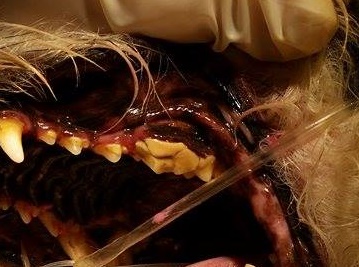Connersville Veterinary Clinic
(765)825-9620
www.connersvillevetclinic.com
|
Dental Health Month
Dental Health Did you know that your pets need dental care too?! And not just your canine friends, cats need dental care as well! There are ways that we can help prevent tarter build up, cavities, abscesses, etc. If you start brushing your pets teeth at an early age, this will help make them more comfortable as they start to age. They make toothpaste specifically for cats and dogs that you can purchase through your veterinarian as well as at specific pet care facilities.
A healthy mouth means a healthy pet. Dental disease in cats and dogs is very common and it can be extremely dangerous. If left untreated, it can lead to major problems such as Congestive Heart Failure, Kidney Failure, etc. Infections from decaying teeth may also spread directly to the sinus cavities or the eyes. Common Dental Problems Tooth Root Abscess: Periodontal Disease Broken/ Fractured Teeth Retained Teeth Oral Masses If your pet starts displaying these signs, its a good indicator that you may need to get their mouth checked: - Thickening and Bleeding of gums - Noticeable gum growth over teeth Oral masses can either be benign or malignant. Some can be caused by infection in the gums. Prognosis of an oral mass is directly related to the type of tumor. With treatment, benign tumors usually result in a normal lifespan (this is not always the case). Malignant tumors usually need aggressive surgery and/or radiation and chemo.
|

